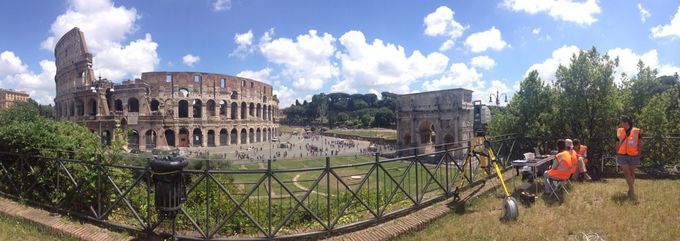
A symposium on blended scholarship and management in the new millennium.
April 2,3, & 4, 2014
Rome, Italy
Full information and registration
Ground breaking methods of documentation and interpretation of World Heritage Sites, is the theme for a collaborative symposium with Soprintendenza Speciale per i Beni Archeologici di Roma and NASA. Scholars in Sciences and Humanities are trying to uncover a layer of evidence from the past with the technology of the future in order to make sense of and reveal a particular reality. Traditional methods of documenting and archiving coupled with new technologies advance the methods of mapping and interpretation of the site. The symposium will focus on the need for state-of-the-art tools and contemporary technologies that transform the way we think about documentation, interpretation, archiving and preservation for future generations. With the convergence of both traditional and new technologies, we are able to reveal a greater depth to the story that history has left behind. Technology transfer in humanities is still on an exploratory basis. Having other university faculty contribute to the topics of Geo registration, land and subsurface mapping/imagery, remote sensing, cartography, accelerator mass spectrometry and finite element method with the goal of integrated use will transform and bring forward innovative methods of documenting heritage and furthering research on site.
The main objective is to briefly describe pioneering technologies in order to reveal the impact of these technological applications on the improvement and management of heritage sites. Thus, allowing State agencies involved in running the site to get an insight into using various techniques (documentation, analysis and historic research) of studying and maintaining the site to present their findings. The symposium will also be a platform to present various techniques of merging scientific research with site management with specific conclusions.
Symposium Chair: Krupali Uplekar Krusche, Nanovic fellow and associate professor of architecture at the University of Notre Dame
The Digital Future of World Heritage (Notre Dame Architecture News)
CyArk challenges world to digitally preserve 500 heritage sites in 5 years.
Sponsored by Soprintendenza Speciale per i Beni Archeologici di Roma, and the Nanovic Institute for European Studies at the University of Notre Dame.
Additional information about Digital Historical Architectural Research and Material Analysis or (DHARMA) can be found here.